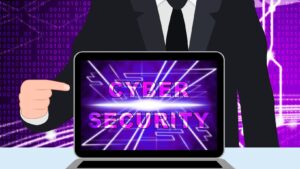As someone deeply immersed in the realm of cybersecurity, I’ve come to appreciate the critical role that understanding the background of this field plays in safeguarding our digital world. In today’s interconnected landscape, having a solid grasp of cybersecurity’s historical context is key to navigating the ever-evolving threats we face.
Exploring the roots of cybersecurity not only sheds light on how far we’ve come but also provides invaluable insights into the strategies and technologies that have shaped the defense mechanisms we rely on today. From early encryption methods to the rise of sophisticated cyber attacks, tracing the cybersecurity background is like uncovering the blueprint of our digital defenses.
Cybersecurity Background
Early Beginnings of Cybersecurity
In the early days of cybersecurity, basic encryption techniques were implemented to secure sensitive information. These methods, such as the Caesar cipher used by Julius Caesar, laid the foundation for modern encryption practices. Understanding these early beginnings is essential to grasp the fundamental principles of cybersecurity.
Advancements in Cybersecurity Measures
Over time, cybersecurity measures have evolved to meet the growing sophistication of cyber threats. From the development of complex algorithms to the implementation of multi-factor authentication, advancements in cybersecurity have revolutionized the way we protect our digital assets. Staying informed about these measures is crucial in effectively countering modern cyber attacks.
Importance of Understanding Cybersecurity Background
Impacts of Cybersecurity Breaches
Cybersecurity breaches can have devastating consequences on individuals, businesses, and entire economies. These breaches lead to financial losses, reputational damage, and legal implications. For instance, in 2020, there were over 1,000 reported data breaches in the United States alone, exposing 155.8 million individuals’ sensitive information.
Cybersecurity Breaches in the Healthcare Sector
The healthcare sector is particularly vulnerable to cybersecurity breaches due to the vast amount of sensitive patient data it holds. In 2019, the healthcare industry experienced 533 data breaches, costing the sector $25 billion annually. These breaches not only jeopardize patient privacy but also impact the quality of care delivered.
Operational Disruption and Loss of Trust
Apart from financial repercussions, cybersecurity breaches can result in significant operational disruption. Companies may face downtime, loss of productivity, and even regulatory fines. Moreover, breaches erode trust between businesses and their customers, leading to long-term repercussions on brand loyalty and market reputation.
Importance of Proactive Security Measures
Understanding the background of cybersecurity is crucial to implementing proactive security measures. By learning from past breaches and historical encryption methods, organizations can strengthen their defenses against evolving cyber threats. It’s essential to stay updated on cybersecurity trends and best practices to mitigate risks effectively.
Collaborative Efforts in Cybersecurity
Given the evolving nature of cyber threats, collaboration among stakeholders is vital. Government agencies, private companies, and individuals must work together to enhance cybersecurity resilience. Sharing information, investing in robust security infrastructure, and promoting cybersecurity awareness are key components of a collaborative approach to cybersecurity.
Role of Education and Training in Cybersecurity Background
Education and training play a crucial role in shaping one’s cybersecurity background. As I delve into the significance of education and training in cybersecurity, here are key points to consider:
- Foundational Knowledge: Building a strong cybersecurity foundation starts with education. Understanding fundamental concepts such as encryption, network security, and threat detection is essential.
- Specialized Training: Specialized training programs equip individuals with the skills needed to address specific cybersecurity challenges. Courses on ethical hacking, malware analysis, and secure coding enhance expertise in key areas.
- Certifications: Acquiring industry-recognized certifications like CompTIA Security+, Certified Information Systems Security Professional (CISSP), and Certified Ethical Hacker (CEH) validates one’s expertise and enhances credibility in the cybersecurity field.
- Hands-On Experience: Practical experience through simulations, labs, and real-world scenarios is invaluable. It allows individuals to apply theoretical knowledge to solve practical cybersecurity issues effectively.
- Continuous Learning: The ever-evolving nature of cybersecurity requires professionals to engage in continuous learning. Staying updated on the latest threats, trends, and technologies is vital to maintaining a robust cybersecurity background.
By emphasizing the importance of education, specialized training, certifications, practical experience, continuous learning, and institutional support, individuals can build a solid cybersecurity background to effectively combat evolving cyber threats.


